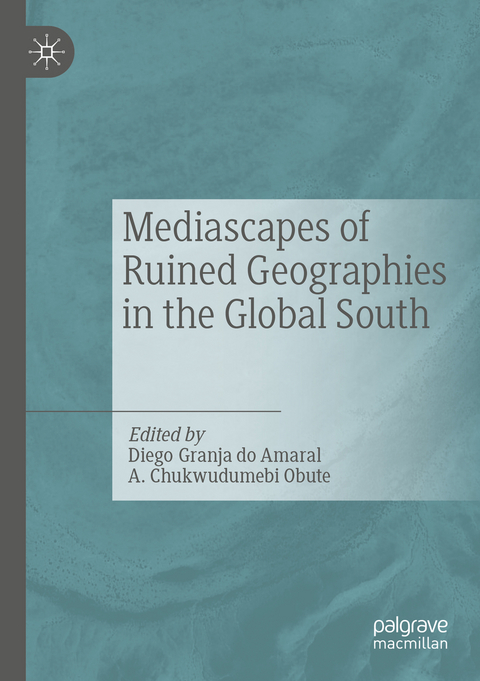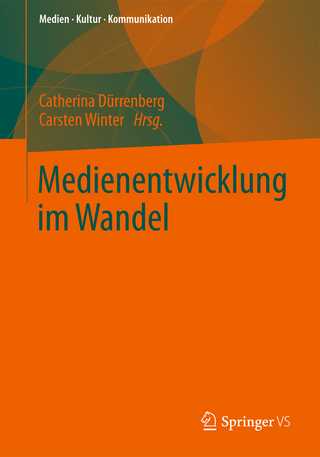
Mediascapes of Ruined Geographies in the Global South
Springer International Publishing (Verlag)
978-3-031-31592-3 (ISBN)
This project is divided into five (5) parts of three essays each. The first part examines the territorial contestation in the Middle East framed and expressed through films and literary lenses. The second part examines the environmental burden of modern consumerism and urbanization on metropolis across Mexico, Brazil, and Nigeria, while the third part explores the attritional violence of resource extraction in the DRC, Brazil, and Nigeria via filmic and journalistic lenses. The fourth part offers a swift response from the margins through ethnographic and journalistic interrogation of the subjectivity of the subalterns of Brazilian favelas, and street artists. The fifth part offers an engaging critique of the political climates of South Africa and Brazil that reinforce the environmental catastrophe of the regions of the world.
Diego Amaral is Postdoc researcher at the Universidade Federal de Sergipe.
Dumebi Obute is Adjunct Lecturer at the University of Tubingen, Germany.
Part 1: Contested Geographies of the South.- 1: Naji Abu Nowar's Theeb and the Remapping of Arabia.- 2: (Re)visiting Place: Waters and barriers in Lisa Suheir Majaj's Geographies of Light, Suheir Hammad's Breaking Poems, and Anna Maria Jacir's Salt of the Sea.- 3: Puzzling Memories: Scattered Glimpses of A Journey to the (Un-Homely) Land. Part 2: Metropolis of Waste, Ruins, and Dystopia.- 4: The Visual Landscape of Waste in Mexico City: Initial Approaches.- 5: Lagos in Motion: Trailing the Environmental Ruins of Urbanization.- 6: Sertao through Narratives: The Invention of Dystopian Geography.- Part 3: Post-Extraction Environments of the South.- 7: Colonization, Resource Extraction, and War in Blood Diamond.- 8: Building Fluid Spaces: The Narrative Power of Uncertainty in Journalism Analysis.- 9: Resistance from the Global South: Nigerian Press Coverage of Bonga Oil Spill Controversy.- Part 4: Subterranean South: Cultures of Dissensus, Graffities and Incarceration.- 10: Pixacao and Sao Pauloa's Skin: Ethnographic Notes on the Challenge of a Fragmented and Verticalized City.- 11: News of Peace and War: Survival Communication Modes in the Favelas of Complexo do Alemao.- 12: Subjectivating faces: Notes on the Work with Images at Youth Correctional Centers.- Part 5: Youths, Insurrections and Southern Politics.- 13: Music, Politics and Activism: The Case of the Use of 'Carmina Burana' in Brazilian Protest.- 14: The Impossible Politics.- 15: Writing Back to Charlie Foxtrot. Ulrike Kistner.
| Erscheinungsdatum | 22.08.2024 |
|---|---|
| Zusatzinfo | XVIII, 299 p. |
| Verlagsort | Cham |
| Sprache | englisch |
| Maße | 148 x 210 mm |
| Gewicht | 416 g |
| Themenwelt | Sozialwissenschaften ► Kommunikation / Medien ► Kommunikationswissenschaft |
| Sozialwissenschaften ► Kommunikation / Medien ► Medienwissenschaft | |
| Schlagworte | Brazil • Colonization • Global capitalism • material geographies • Mexico • Palestine • Resource extraction • urbanization |
| ISBN-10 | 3-031-31592-8 / 3031315928 |
| ISBN-13 | 978-3-031-31592-3 / 9783031315923 |
| Zustand | Neuware |
| Informationen gemäß Produktsicherheitsverordnung (GPSR) | |
| Haben Sie eine Frage zum Produkt? |
aus dem Bereich


